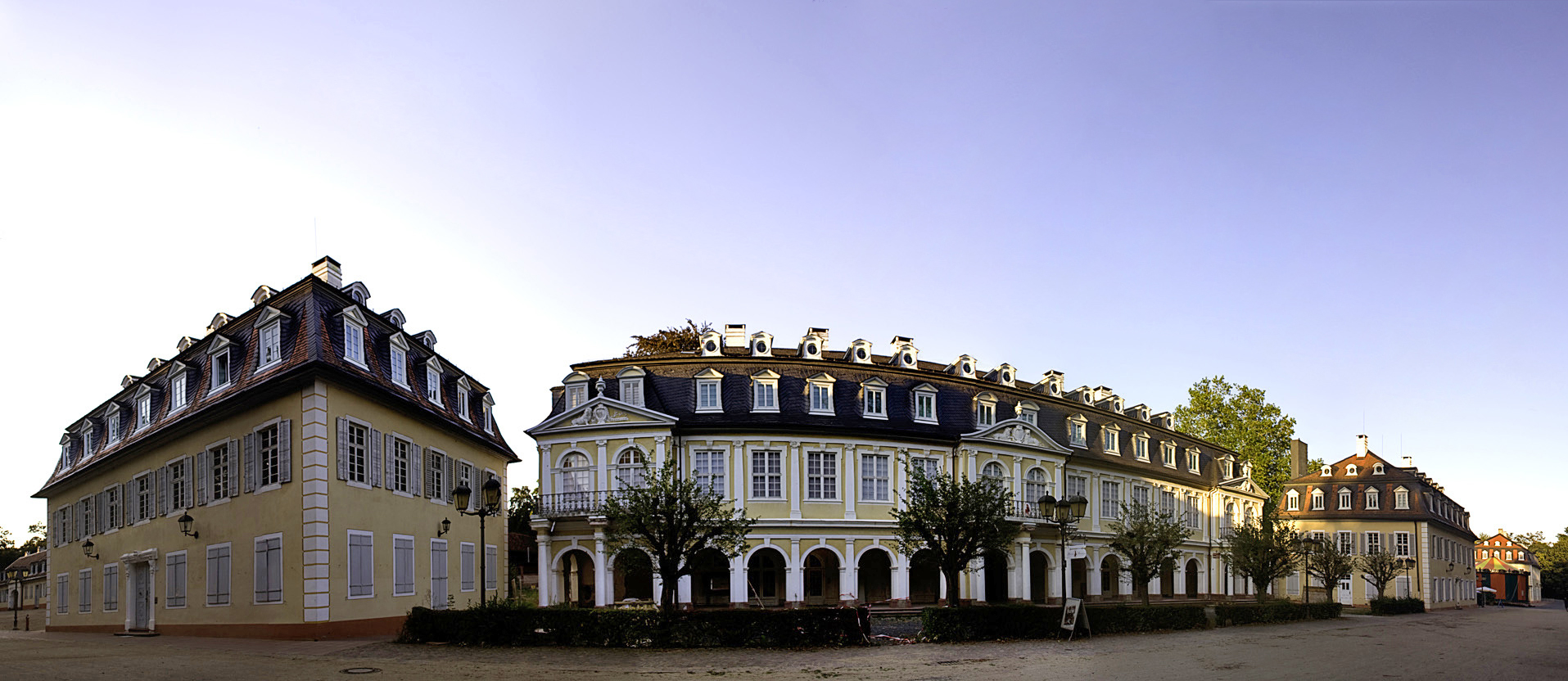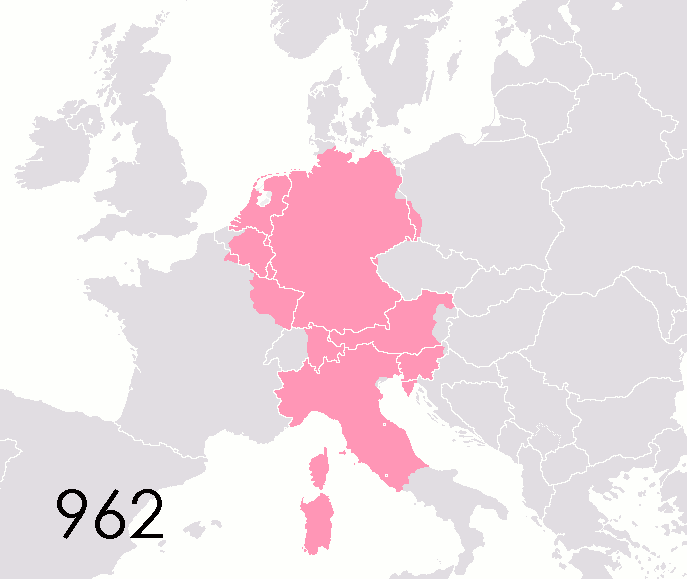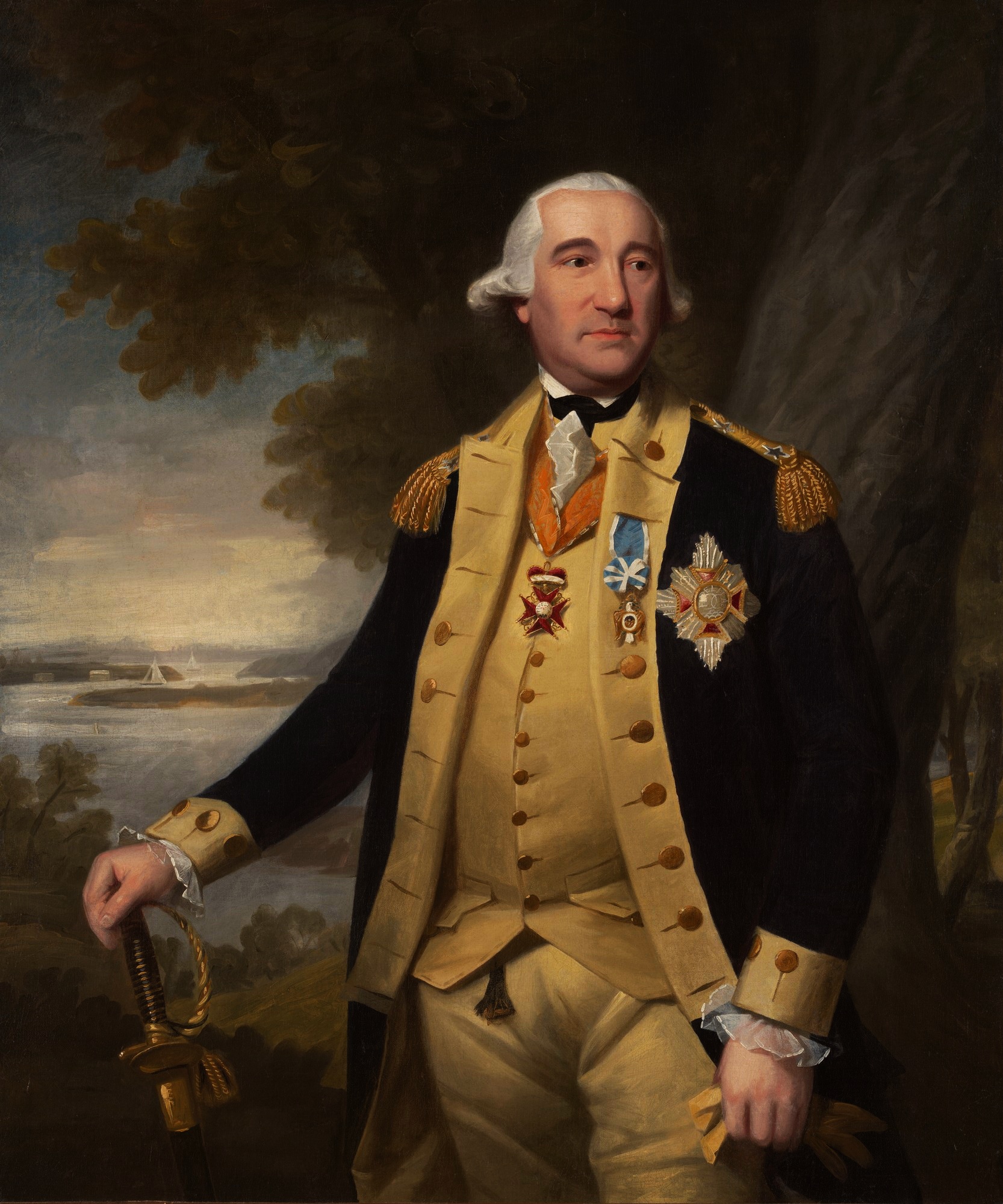|
Hesse-Hanau
Hesse-Hanau was a territory in the Holy Roman Empire. It emerged when the former county of Hanau-Münzenberg became a secundogeniture of Hesse-Kassel in 1760. When the reigning count, William IX, also became landgrave of Hesse-Cassel in 1785, the two governments began to merge, although the process was delayed first by French occupation, and later by incorporation into the French satellite duchy of Frankfurt. The incorporation of Hesse-Hanau with Hesse-Cassel was not completed until 1821. Secundogeniture When the hereditary prince of Hesse-Cassel, the later Frederick II, converted to Roman Catholicism, his father, the reigning landgrave William VIII decided to do what he could to limit his son's future realm. He therefore made the county of Hanau-Münzenberg, incorporated with Hesse-Cassel in 1736, a secundogeniture of Hesse-Cassel, transferring it to the oldest son of Frederic, the hereditary count William. Sovereignty As count William was underage, his mother the landgravin ... [...More Info...] [...Related Items...] OR: [Wikipedia] [Google] [Baidu] |
Holy Roman Empire
The Holy Roman Empire, also known as the Holy Roman Empire of the German Nation after 1512, was a polity in Central and Western Europe, usually headed by the Holy Roman Emperor. It developed in the Early Middle Ages, and lasted for a millennium until its Dissolution of the Holy Roman Empire, dissolution in 1806 during the Napoleonic Wars. For most of its history the Empire comprised the entirety of the modern countries of Germany, Czechia, Austria, the Netherlands, Belgium, Switzerland, Slovenia, and Luxembourg, most of north-central Italy, and large parts of modern-day east France and west Poland. On 25 December 800, Pope Leo III crowned the Frankish king Charlemagne Roman emperor, reviving the title more than three centuries after the fall of the Western Roman Empire in 476. The title lapsed in 924, but was revived in 962 when Otto I, OttoI was crowned emperor by Pope John XII, as Charlemagne's and the Carolingian Empire's successor. From 962 until the 12th century, the empire ... [...More Info...] [...Related Items...] OR: [Wikipedia] [Google] [Baidu] |
Protestant
Protestantism is a branch of Christianity that emphasizes Justification (theology), justification of sinners Sola fide, through faith alone, the teaching that Salvation in Christianity, salvation comes by unmerited Grace in Christianity, divine grace, the priesthood of all believers, and the Bible as the sole infallible source of authority for Christian faith and practice. The five solae, five ''solae'' summarize the basic theological beliefs of mainstream Protestantism. Protestants follow the theological tenets of the Reformation, Protestant Reformation, a movement that began in the 16th century with the goal of reforming the Catholic Church from perceived Criticism of the Catholic Church, errors, abuses, and discrepancies. The Reformation began in the Holy Roman Empire in 1517, when Martin Luther published his ''Ninety-five Theses'' as a reaction against abuses in the sale of indulgences by the Catholic Church, which purported to offer the remission of the Purgatory, temporal ... [...More Info...] [...Related Items...] OR: [Wikipedia] [Google] [Baidu] |
Counties Of The Holy Roman Empire
This list of states in the Holy Roman Empire includes any territory ruled by an authority that had been granted imperial immediacy, as well as many other feudal entities such as lordships, sous-fiefs, and allodial fiefs. The Holy Roman Empire was a complex political entity that existed in central Europe for most of the medieval and early modern periods and was generally ruled by a German-speaking Emperor. The states that composed the Empire, while enjoying a form of territorial authority called ''Landeshoheit'' that granted them many attributes of sovereignty, were never fully sovereign states in the sense that term is understood presently. In the 18th century, the Holy Roman Empire consisted of approximately 1,800 such territories, the majority being tiny estates owned by the families of Imperial Knights. This page does not directly contain the list but discusses the format of the various lists and offers some background to understand the complex organisation of the Holy Roman E ... [...More Info...] [...Related Items...] OR: [Wikipedia] [Google] [Baidu] |
Landkreis
In 13 German states, the primary administrative subdivision higher than a '' Gemeinde'' (municipality) is the () or (). Most major cities in Germany are not part of any ''Kreis'', but instead combine the functions of a municipality and a ''Kreis''; such a city is referred to as a () or (). ''(Land-)Kreise'' stand at an intermediate level of administration between each state () and the municipalities () within it. These correspond to level-3 administrative units in the Nomenclature of Territorial Units for Statistics (NUTS 3). Previously, the similar title Imperial Circle () referred to groups of states in the Holy Roman Empire. The related term was used for similar administrative divisions in some German territories until the 19th century. Types of districts The majority of German districts are "rural districts" (German: , ), of which there are 294 . Cities with more than 100,000 inhabitants (and smaller towns in some states) do not usually belong to a district, bu ... [...More Info...] [...Related Items...] OR: [Wikipedia] [Google] [Baidu] |
William II, Elector Of Hesse
William II (; 28July 177720November 1847) was the penultimate Elector of Hesse.After 1806, the title of ''Elector'' was meaningless, since no more Holy Roman Emperors could be elected, because the Empire had been dissolved. Nevertheless, the rulers of Hesse-Kassel still used the title. Early life William was the eldest surviving son of William I, Elector of Hesse and Wilhelmina Caroline of Denmark and Norway. With the Hessian troops, he was involved in the War of the Sixth Coalition against Napoleon in 1813. He succeeded as Elector of Hesse (a title that was moribund after the dissolution of the Holy Roman Empire in 1806) after his father's death in 1821. Upon succeeding his father as Elector, he halted the construction of the Chattenburg palace. Instead, he focused on expanding the Residenzpalais in Kassel. Personal life On 13 February 1797 in Berlin, William married Princess Augusta of Prussia, fourth daughter of King Frederick William II of Prussia. They had six children ... [...More Info...] [...Related Items...] OR: [Wikipedia] [Google] [Baidu] |
German War Of Liberation
In the War of the Sixth Coalition () (December 1812 – May 1814), sometimes known in Germany as the Wars of Liberation (), a coalition of Austria, Prussia, Russia, Spain, the United Kingdom, Portugal, Sweden, Sardinia, and a number of German States defeated France and drove Napoleon into exile on Elba. After the disastrous French invasion of Russia of 1812 in which they had been forced to support France, Prussia and Austria joined Russia, the United Kingdom, Sweden, and Portugal, and the rebels in Spain who were already at war with France. The War of the Sixth Coalition saw battles at Lützen, Bautzen, and Dresden. The even larger Battle of Leipzig (also known as the Battle of Nations) was the largest battle in European history before World War I. Ultimately, Napoleon's earlier setbacks in Spain, Portugal and Russia proved to be the seeds of his undoing. With their armies reorganized, the allies drove Napoleon out of Germany in 1813 and invaded France in 1814. The Allies ... [...More Info...] [...Related Items...] OR: [Wikipedia] [Google] [Baidu] |
Kingdom Of Westphalia
The Kingdom of Westphalia was a client state of First French Empire, France in present-day Germany that existed from 1807 to 1813. While formally independent, it was ruled by Napoleon's brother Jérôme Bonaparte. It was named after Westphalia, but this was a misnomer since the kingdom had little territory in common with that area. The region mostly covered territory formerly known as Eastphalia. Napoleon imposed the Constitution of the Kingdom of Westphalia, first written modern constitution in Germany, a French-style central administration, and agricultural reform. The kingdom liberated the Serfdom, serfs and gave everyone equal rights and the right to a jury trial. In 1808 the kingdom passed Germany's first laws granting Jews equal rights, thereby providing a model for reform in the other German states. Westphalia seemed to be progressive in immediately enacting and enforcing the new reforms. The country was relatively poor but Napoleon demanded heavy taxes and payments and c ... [...More Info...] [...Related Items...] OR: [Wikipedia] [Google] [Baidu] |
Creuzbourg's Jäger Corps
Creuzbourg's Jäger Corps ''(Jäger-Corps von Creuzbourg)'' was an independent Jäger battalion raised by the county of Hesse-Hanau and put to the disposition of the British Crown, as part of the German Allied contingent during the American Revolutionary War. The corps fought at the Battle of Oriskany, although mostly serving as garrison of different Canadian posts. Formation When the American Revolution began, the British Army was too small to overwhelm the rebellious colonies with armed might. Subsequently, United Kingdom entered treaties with a number of German principalities, which provided the British Crown with allied contingents for service in North America in return for monetary subsidies. A mutual aid- and alliance treaty between United Kingdom and Hesse-Hanau was entered in February 1776. A Jäger corps under the command of Lieutenant Colonel Karl Adolf Christoph von Creutzburg was among the units in the Hesse-Hanau contingent. [...More Info...] [...Related Items...] OR: [Wikipedia] [Google] [Baidu] |
American Revolutionary War
The American Revolutionary War (April 19, 1775 – September 3, 1783), also known as the Revolutionary War or American War of Independence, was the armed conflict that comprised the final eight years of the broader American Revolution, in which American Patriot (American Revolution), Patriot forces organized as the Continental Army and commanded by George Washington defeated the British Army during the American Revolutionary War, British Army. The conflict was fought in North America, the Caribbean, and the Atlantic Ocean. The war's outcome seemed uncertain for most of the war. However, Washington and the Continental Army's decisive victory in the Siege of Yorktown in 1781 led King George III and the Kingdom of Great Britain to negotiate an end to the war in the Treaty of Paris (1783), Treaty of Paris two years later, in 1783, in which the British monarchy acknowledged the independence of the Thirteen Colonies, leading to the establishment of the United States as an independent and ... [...More Info...] [...Related Items...] OR: [Wikipedia] [Google] [Baidu] |
Germans In The American Revolution
People of German ancestry fought on both sides in the American Revolution. Many of the small German states in Europe supported the British. King George III of Britain was simultaneously the ruler of the German state of Hanover. Around 30,000 Germans fought for the British during the war, around 25% of British land forces. In particular, 12,000 Hessian soldiers served as Auxiliaries on the side of British. However some Germans who were supporters of Congress as individuals crossed the Atlantic to help the Patriots. Inside America, German Americans were largely concentrated in Pennsylvania and upstate New York. The majority supported Congress and the patriot cause. Very few German Americans were Loyalists, although many of the religious sects (such as the Amish) were neutral. It is estimated that nearly 5,000 of the German auxiliaries permanently settled in the United States. European allies of Britain Germans in Europe lived in numerous separate states. Some of these states ... [...More Info...] [...Related Items...] OR: [Wikipedia] [Google] [Baidu] |
George III Of The United Kingdom
George III (George William Frederick; 4 June 173829 January 1820) was King of Great Britain and Ireland from 25 October 1760 until his death in 1820. The Acts of Union 1800 unified Great Britain and Ireland into the United Kingdom of Great Britain and Ireland, with George as its king. He was concurrently Duke and Prince-elector of Hanover in the Holy Roman Empire before becoming King of Hanover on 12 October 1814. He was the first monarch of the House of Hanover who was born in Great Britain, spoke English as his first language, and never visited Hanover. George was born during the reign of his paternal grandfather, King George II, as the first son of Frederick, Prince of Wales, and Princess Augusta of Saxe-Gotha. Following his father's death in 1751, Prince George became heir apparent and Prince of Wales. He succeeded to the throne on George II's death in 1760. The following year, he married Princess Charlotte of Mecklenburg-Strelitz, with whom he had 15 children. G ... [...More Info...] [...Related Items...] OR: [Wikipedia] [Google] [Baidu] |
Subsidy
A subsidy, subvention or government incentive is a type of government expenditure for individuals and households, as well as businesses with the aim of stabilizing the economy. It ensures that individuals and households are viable by having access to essential goods and services while giving businesses the opportunity to stay afloat and/or competitive. Subsidies not only promote long term economic stability but also help governments to respond to economic shocks during a recession or in response to unforeseen shocks, such as the COVID-19 pandemic. Subsidies take various forms— such as direct government expenditures, tax incentives, soft loans, price support, and government provision of goods and services. For instance, the government may distribute direct payment subsidies to individuals and households during an economic downturn in order to help its citizens pay their bills and to stimulate economic activity. Here, subsidies act as an effective financial aid issued when t ... [...More Info...] [...Related Items...] OR: [Wikipedia] [Google] [Baidu] |







